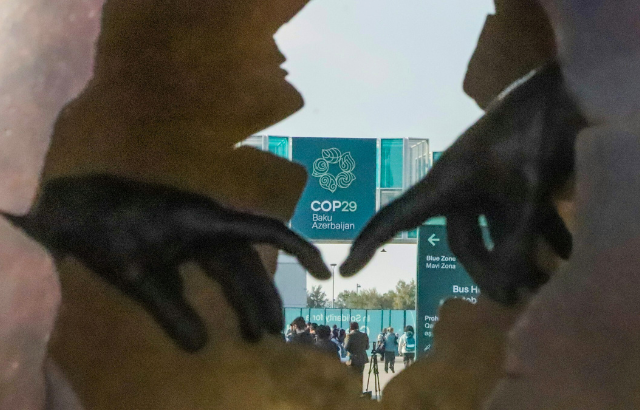COP29: Falling short on climate action
Can the world afford another climate summit of compromises? Dr Fernando Barrio, Reader at the School of Business and Management and member of Queen Mary Global Policy Institute, dissects the outcomes of COP29, revealing the missed opportunities and urgent need for bold action to confront the escalating climate crisis.

The 29th United Nations Conference of the Parties (COP29) in Baku, Azerbaijan, once expected to be the implementation and finance COP, became a clear example of both the progress and deep-seated challenges in global climate governance. The $300 billion annual climate finance commitment by 2035 seemed to triple the previous target, although that view would ignore decades of inflation and that it fell woefully short of the $1.3 trillion demanded by developing nations and needed to address the growing climate crisis effectively.
This agreement, praised by some as a breakthrough, feels more like a makeshift, plagued by vague terms and reliance on "all public and private sources" rather than concrete commitments. Once again, the financial burden falls on developing nations, which suffer most from climate change despite contributing the least. Frustration is evident, with many calling it "too little, too late." Wealthy nations, historically responsible for the bulk of emissions and bound by principles like "polluter pays," continue to fall short in providing the necessary resources to address the damage they've caused.
Adding to the disillusionment was the backsliding on COP28 commitments to phase out fossil fuels, with weaker language on the transition. Fossil fuel-dependent nations, driven by economic interests, diluted the agreement, prioritising short-term profits over long-term sustainability. This step undermines the urgency of climate action and highlights a disconnect between science and politics. Despite talk of just transitions, COP29 demonstrated how easily ideals are compromised, even as renewable energy becomes increasingly viable and competitive.
The geopolitical undercurrents at COP29 also exposed deep fractures in global cooperation, with the election of Donald Trump, a climate sceptic, looming heavily over the negotiations, dampening enthusiasm and raising doubts about the next few years United States' role in global climate leadership. Argentina's withdrawal from negotiations under President Javier Milei, who openly derides climate science, added to the sense of disarray. These developments highlight how the politicisation of climate action continues to derail meaningful progress. It is disheartening that, at a time when unity is most needed, misguided ideologies, nationalistic agendas and short-term political calculations dominate the conversation.
One technical outcome of COP29 was the long-awaited agreement on global carbon trading rules after a decade of talks. However, it difficult to say whether the glass is half full or half empty, because while this step is framed as a tool to drive emissions reductions efficiently, it risks becoming another mechanism for wealthier nations to avoid substantive climate action. Carbon markets, though promising in theory, often suffer from transparency issues and can deepen inequalities. They must not become a smokescreen for inaction, allowing high-emission countries to buy their way out of responsibility. Just implementation is crucial, but given the track record of climate agreements, scepticism is justified.
The broader takeaway from COP29 is the ever-widening gap between rhetoric and reality, not forgetting that the promises made, whether financial or policy-oriented, are only meaningful if they translate into action. With countries increasingly moving towards more local focus and short-term politics, the climate crisis does not wait for political convenience or incremental progress; it is escalating rapidly, with devastating consequences being felt across the globe. This year is set to be the warmest on record, with extreme weather events wreaking havoc across the planet.
The submission of new Nationally Determined Contributions (NDCs) by February 2025 will be a crucial test of global commitment. These plans must push for transformative action, including a rapid fossil fuel phase-out and major investment in renewable energy. Wealthier nations must back their words with transparent financial and technological support for developing countries. Innovative tools like artificial intelligence should enhance climate governance, from predictive analytics to adaptive policies, but their use must prioritise equity and inclusivity, ensuring they benefit the most vulnerable rather than deepening inequalities.
In the end, COP29 embodied the contradictions of global climate diplomacy, highlighting the need to rethink climate governance. While there were glimmers of hope—such as a focus on digital technologies, commitments to adaptation financing, and carbon market frameworks—it also underscored how much remains to be done. If these summits continue to favour compromise over bold action, the world risks losing the fight against climate change. The stakes are immense, and half-measures or empty promises are no longer acceptable. What’s needed is leadership that recognises the urgency and acts decisively to secure a liveable future for all.
Related items

29 November 2024

12 November 2024
